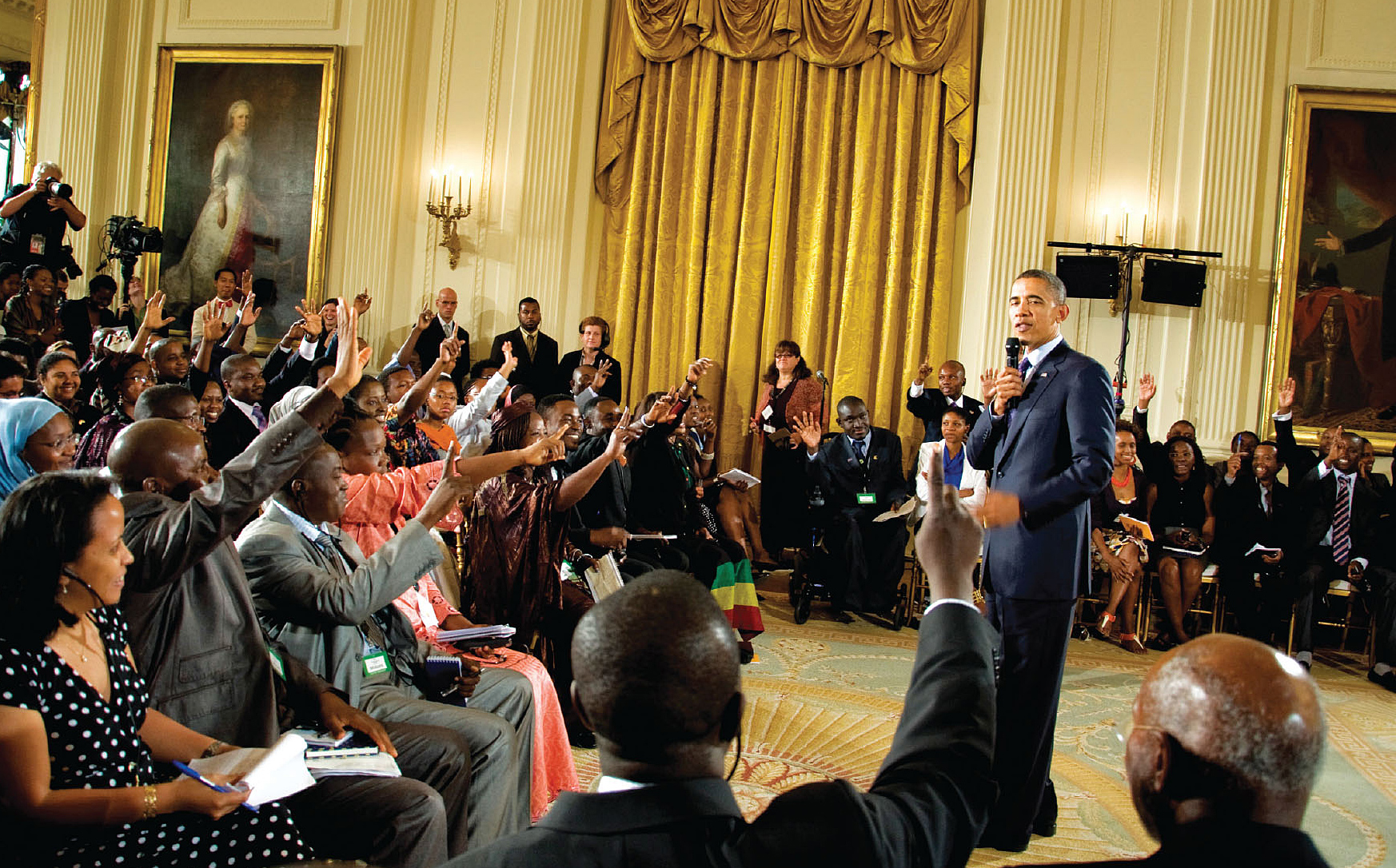The Obama administration has selected the Presidential Precinct, comprising two top universities and three presidential homes in Virginia, to support a new initiative aimed at strengthening U.S.-Africa relations, propelling economic growth, prosperity and democracy in Africa.
The University of Virginia, including its programming partner Morven; William & Mary; Thomas Jefferson’s Monticello; James Madison’s Montpelier; and James Monroe’s Ash Lawn-Highland will host 25 promising young African leaders this summer. The young leaders, aged 25 to 35 years, were selected by the White House through an application process.
The Presidential Precinct is one of 20 entities chosen to support the Washington Fellowship for Young African Leaders, the new flagship program of President Obama’s Young African Leaders Initiative.
In announcing the initiative in 2010, President Obama said Africa’s future belongs to its young people. “We need young Africans who are standing up and making things happen, not only in their own countries, but around the world,” he said.
The fellowship program supports young leaders to spur growth and prosperity, strengthen democratic governance and enhance peace and security across the African continent.
The Presidential Precinct will host the fellows for six weeks beginning in June, offering leadership training, academic coursework and mentoring in Charlottesville, Orange and Williamsburg. The precinct tailored the program to focus on the skills leaders need to run better ministries, start and grow businesses and serve their communities and countries. This is the first year of a five-year program in which the precinct will host 225 emerging leaders.
“The Presidential Precinct is well-suited to work with Africa’s emerging leaders,” Jeffrey W. Legro, U.Va’s vice provost for global affairs, said. “We will gather experts and students at U.Va. and William & Mary along with the resources and talents of the three presidential houses to engage Africa’s top talents in a dialogue on building civil society. Needless to say, we expect to learn much from this exchange and hopefully contribute something along the way.”
“This is a truly inspiring project for all of us in the Presidential Precinct,” said Stephen E. Hanson, vice provost for international affairs and director of the Reves Center for International Studies at William & Mary. “It links the formative debates about democracy, federalism and the nature of liberty among our nation’s founders to contemporary struggles for political representation and good governance taking place across the entire African continent.”
The precinct is receiving financial support for the program from AECOM, a Fortune 500 company and one of the world’s largest design and engineering firms. Through a partnership with the precinct, AECOM has committed nearly $300,000 to support the program’s development and execution. AECOM serves clients in more than 150 countries and is present in more than 30 countries in Africa.
“We are proud to support this important leadership initiative, which will contribute to the bright future of Africa and the continent’s continued emergence as a centerpiece of the global economy,” said Michael S. Burke, president and chief executive officer of AECOM. “This initiative offers a valuable platform to engage young African leaders in critical dialogue that relates directly to growth and prosperity, democratic governance, as well as peace and security across Africa as part of building a sustainable future for the continent.”
The U.S. Department of State has also committed $100,000 to the program.
The visiting leaders will also meet with civic, business and government experts, have access to internship and apprenticeship opportunities, and meet Obama at a presidential summit in support of Washington’s commitment to Africa.
Media Contact
Article Information
March 13, 2014
/content/white-house-taps-uva-william-mary-presidential-homes-support-africa-initiative

